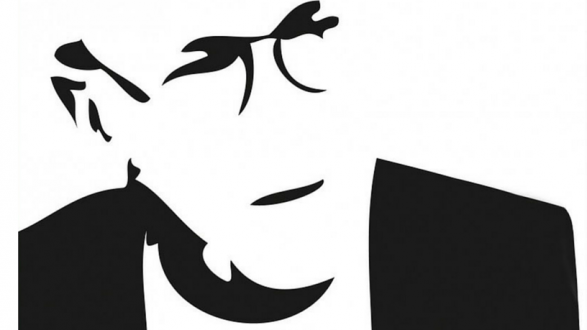In:
The world today is more democratic than ever before, with the majority of countries governed by systems with citizen political participation, constraints on the power of the executive, and a guarantee of civil liberties. But how does the successful democratization of a state, previously ruled by an authoritarian regime, take shape?
We spoke to Abraham F. Lowenthal, the founding president of the Pacific Council, about his new book Democratic Transitions: Conversations with World Leaders, co-authored with Sergio Bitar, a Chilean political leader and public intellectual. In an ambitious project commissioned by the International Institute for Democracy and Electoral Assistance (International IDEA), the book is a compilation of extended interviews with 13 former political leaders on five continents who have played key roles in democratic transitions in the late 20th century. By concentrating on the importance of political leadership in carrying out successful transitions, Lowenthal and Bitar offer future leaders essential guidelines for establishing sustainable democracies.
A transcript of our conversation follows.
____________________
PC: Your book is based on probing interviews with political leaders on five continents heavily involved with successful democratic transitions. What common principles did you uncover that might be helpful for future countries in the midst of transition?
Lowenthal: We interviewed 13 former presidents and prime ministers in nine countries in Africa, Asia, Europe, and Latin America who helped shape successful and unreversed transitions from authoritarian and exclusionary rule toward democracy in the late 20th century. They played different roles: F. W. de Klerk of South Africa, B. J. Habibie of Indonesia, and Ernesto Zedillo of Mexico were significant leaders in different kinds of authoritarian regimes who contributed to making democratic transitions. Patricio Aylwin and Ricardo Lagos in Chile, Fernando Henrique Cardoso in Brazil, Thabo Mbeki in South Africa, Felipe Gonzalez of Spain, Tadeusz Mazowiecki of Poland, and John Kufuor of Ghana were major opposition leaders who helped end autocratic regimes and then helped construct democratic governance. Aleksander Kwasniewski of Poland, Fidel Ramos of the Philippines, and Jerry Rawlings of Ghana were bridge figures, straddling the divide between authoritarian and democratic rule.
Given the differences in types of authoritarian regimes and the diverse roles these leaders played, there is no simple manual of best practices for making a successful democratic transition.
The essence of leadership is to recognize these challenges in the specific form they present themselves, and to respond to them in ways that open up and reinforce the prospects for democracy.
We found, however, that there are recurrent challenges inherent in the transition from autocracy to democracy, which arose in all of these cases at four stages: preparing for the transition; ending the authoritarian regime; making the transfer of power; and stabilizing and institutionalizing the emerging democracy. The essence of leadership is to recognize these challenges in the specific form they present themselves, and to respond to them in ways that open up and reinforce the prospects for democracy.
A number of key principles seemed to us to emerge. Even in propitious cases, the road to democracy is often long, non-linear, and susceptible to reverses and zigzags. Moving forward requires finding ways to unify the opposition while dividing the incumbent regimes. Strategic patience and a willingness to compromise and accept partial advance is often necessary, but it is also important to project a compelling vision of what eventual democracy will be like, to help overcome pervasive fear and pessimism. Difficult tensions require judicious and constant management: between transitional justice and the aim of achieving mutual toleration between and among contending groups; exerting civilian democratic control over all security forces, yet preserving their capacity to maintain public order; attracting private investment without alienating popular classes; and mobilizing international support without losing legitimacy and agency.
PC: One theme throughout the book is that democracy cannot be imposed from the outside; it needs to manifest from within. How can external democratic countries influence transitions without overstepping?
Lowenthal: Democracy is not an export commodity. It must grow in local soil and be cultivated by local actors. Yet international actors and forces—governments, intergovernmental and international institutions, non-governmental organizations, the media, faith-based institutions, trade unions, professional associations, and others—did play important roles in many of these nine transitions. They can do a good deal—patiently, quietly, and at the request of local actors. They are more likely to be effective when they listen, raise questions that arise from comparative experience, and encourage local actors to consider issues from diverse perspectives rather than promoting pre-packaged answers.
PC: What role do women leaders and social movements play in ending authoritarian regimes?
Lowenthal: Social movements and civil society organizations—including women’s groups, trade unions, faith-based organizations, professional associations, intellectuals, and students—have often played important roles in democratic transitions. They can mobilize and multiply opposition to authoritarian regimes. They can develop and deepen modes of governance that engage people from different classes, regions, ethnic backgrounds, and genders. Our book discusses their roles and in some cases, such as the Philippines (People Power), the roles of large masses of mobilized citizens. But our emphasis is on the special role of political leaders and institutions that are often downplayed by academic studies that focus on structure and preconditions rather than on agency. We highlight the judgments, difficult decisions and courageous actions that contribute to making democracy possible.
____________________
Abraham F. Lowenthal, a widely-published scholar, is the founding president emeritus of the Pacific Council. He is professor emeritus of International Relations at the University of Southern California, and an adjunct professor at Brown University’s Watson Institute. He was also the founding director of the Woodrow Wilson Center’s Latin American Program and the Inter-American Dialogue. Purchase his new book, Democratic Transitions: Conversations with World Leaders.




